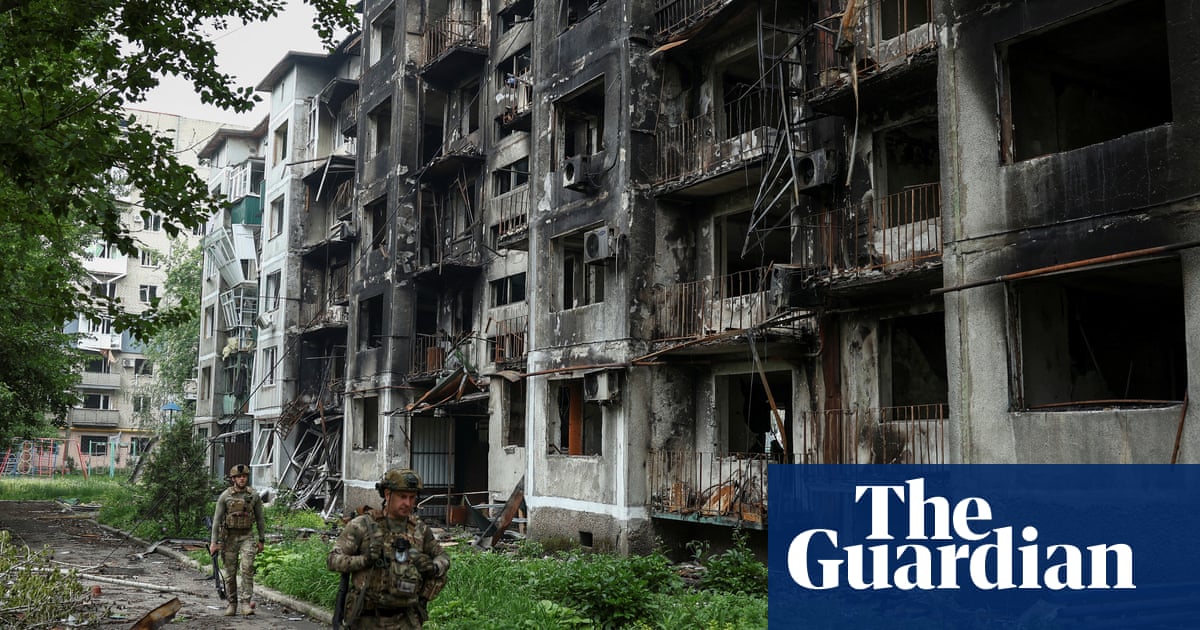G7 finance chiefs condemned what they called Russia’s “continued brutal war” against Ukraine and said that if efforts to achieve a ceasefire failed, they would explore all possible options, including “further ramping up sanctions.”The description of the Ukraine war waswatered down from the prior G7 statementissued in October, before Donald Trump’s re-election, calling it an “illegal, unjustifiable, and unprovoked war of aggression against Ukraine.” Trump has diminished US support for Ukraine and has made statements suggesting that Kyiv was to blame for the conflict as hetries to coax Russia into peace talks.
Ukraineshould abandon any notion of restoring its borders established with the 1991 collapse of Soviet rule or even those dating from the 2022 full-scale Russian invasion, the country’s former military commander was quoted as saying on Thursday.Valerii Zaluzhnyi, now Ukraine’s ambassador to London, was replaced as top commander in February 2024 after months of reported disagreements between him and President Volodymyr Zelenskyy. “I hope that there are not people in this room who still hope for some kind of miracle or lucky sign that will bring peace to Ukraine, the borders of 1991 or 2022 and that there will be great happiness afterward,” the RBK Ukraine news site quoted Zaluzhnyi as telling a forum in Kyiv. “My personal opinion is that the enemy still has resources, forces and means to launch strikes on our territory and attempt specific offensive operations.”
Chancellor Friedrich Merz warned on Thursday that Russia threatened security in Europe as he visited Lithuania to mark the official formation ofGermany’s first permanent overseas military unitsince the second world war, aimed at bolstering Nato’s eastern flank. The decision to build up a 5,000-strong armoured brigade in Lithuania over the coming years came in response to Russia’s full-scale invasion of Ukraine in 2022. “There is a threat to us all from Russia,” Merz told reporters in Vilnius.
Russia has appointed a key commander of the gruelling siege of Mariupol, Gen Andrey Mordvichev, as head of the ground forces, the official newspaper of the Russian army reported on Thursday. Defence minister Andrey Belousov described the 49-year-old general as “an experienced combat officer who fully demonstrated his talent as a military commander during the special military operation,” using Moscow’s term for its Ukraine offensive, according to the Red Star newspaper.
Russia said it had shot down 159 Ukrainian drones over Russian regions, including about 20 headed towards Moscow, between 8 am and 8 pm on Thursday. The previous day, Russia said it shot down well over 300 Ukrainian drones. Three Moscow airports – Domodedovo, Vnukovo and Zhukovsky – suspended flights intermittently.
The EU on Thursday ordered temporary measures for Ukrainian farm imports after failing to agree on a new long-term accord with the Ukrainian government.The EU gave tariff-free access to most Ukrainian agricultural imports after Russia’s 2022 invasion to help the Ukrainian economy. But European farmers say the Ukrainian produce unfairly undercuts their own. The initial agreement with Ukraine is set to expire on 5 June, and both sides appear unable to reach an agreement before the deadline.
EU lawmakers meanwhile approved tariffs on fertiliser imports from Russia on Thursday, despite European farmers’ fears the move could send prices soaring. The European parliament voted 411-100 for a bill that will enact duties in July and gradually increase them to a point where they would make imports unviable. Kremlin spokesperson Dmitry Peskov said the move showed that the Europeans “continue, as always, to shoot themselves in the foot”.
